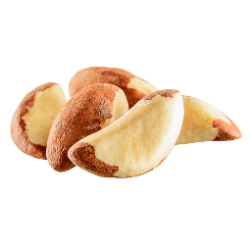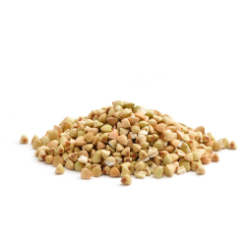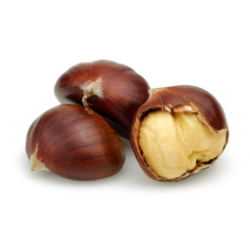Sunflower seeds Nutrition facts
Sunflower seeds

Sweet, nutty sunflower seeds are an excellent source of essential fatty acids, vitamins, and minerals. Sunflower kernels are actually employed to extract edible oil at commercial levels. Besides being eaten as popular snacks, they are also used in the kitchen to prepare a variety of recipes.
Sunflower is a tall, erect, herbaceous annual plant belonging to the family of Asteraceae, in the genus, Helianthus. Its botanical name is Helianthus annuus. It is native to the Middle American region from where it spread as an important commercial crop all over the world through the European explorers. Today, Russian Union, China, the USA, and Argentina are the leading producers of sunflower crops.
Sunflower flourishes well under well-drained moist, lime soil. It prefers good sunlight. Domesticated varieties produce a single large flowerhead (Pseudanthium) at the top. Unlike its domestic cultivar type, the wild sunflower plant exhibits multiple branches with each branch carrying its own individual flower-head. The sunflower head consists of two types of flowers. While sterile, large, yellow petals (ray flowers) grow near its perimeter, the central disk is made up of numerous tiny fertile flowers arranged in concentric whorls, which subsequently convert into achenes (edible seeds).
Similar Food
-
 Almonds 579 Cal
Almonds 579 Cal -
 Brazil nuts 659 Cal
Brazil nuts 659 Cal -
 Buckwheat 343 Cal
Buckwheat 343 Cal -
 Cashew nut 553 Cal
Cashew nut 553 Cal -
 Chestnuts 213 Cal
Chestnuts 213 Cal
Source of Calorie
-
Carbs20.00 g 13%
-
Protein20.78 g 13%
-
Fat51.46 g 74%
How long to burn off 584 Calories?
*Approximate base minutes for a 25-year-old, 65 kg adult at moderate intensity.
| Nutrition Principle | Nutrition Value | Percentage of RDA |
|---|---|---|
| Principle | ||
| Energy | 584 Kcal | 29% |
| Carbohydrates | 20 g | 15% |
| Protein | 20.78 g | 37% |
| Total Fat | 51.46 g | 172% |
| Cholesterol | 0 mg | 0% |
| Dietary Fiber | 8.6 g | 23% |
| Vitamins | ||
| Folates | 227 µg | 57% |
| Niacin | 8.335 mg | 52% |
| Pantothenic acid | 1.130 mg | 22% |
| Pyridoxine | 1.345 mg | 103% |
| Riboflavin | 0.355 mg | 27% |
| Thiamin | 1.480 mg | 123% |
| Vitamin A | 50 IU | 1.7% |
| Vitamin C | 1.4 | 2% |
| Vitamin E | 35.17 mg | 234% |
| Electrolytes | ||
| Sodium | 9 mg | 1% |
| Potassium | 645 mg | 14% |
| Minerals | ||
| Calcium | 78 mg | 8% |
| Copper | 1.800 mg | 200% |
| Iron | 5.25 mg | 63% |
| Magnesium | 325 mg | 81% |
| Manganese | 1.950 mg | 85% |
| Phosphorus | 660 mg | 94% |
| Selenium | 53 µg | 96% |
| Zinc | 5.00 mg | 45% |
| Phyto-nutrients | ||
| Carotene-ß | 30 µg | -- |
| Crypto-xanthin-ß | 0 µg | -- |
| Lutein-zeaxanthin | 0 µg | -- |